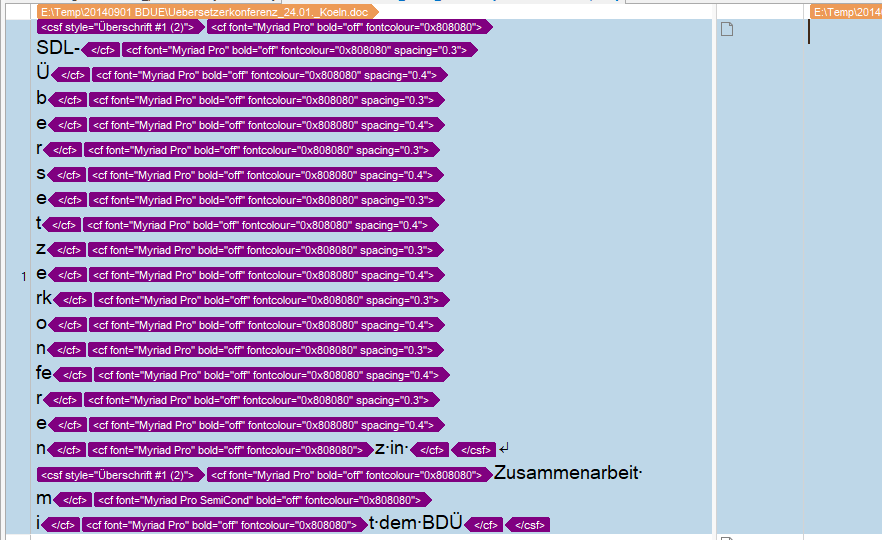Hi,
It's the second time that I'm facing this error. I sent a package to a translator (there was nothing wrong with the project so far). The translator did his job and send me back the return package. The problem is that the output file couldn't open in Microsoft Word (xml parsing error). So, after searching the net, I couldn't find anything, and made the project again and pretranslated it. The project had lots of segments needed to merge, and the translator merged all that segments (I think this problem is with merging the segments with tags). So, a lot of segments hadn't translation, and I had to put them manually into the word document. It's so frustrating, so please debug it or show me a workaround.
Thank you.

 Translate
Translate

